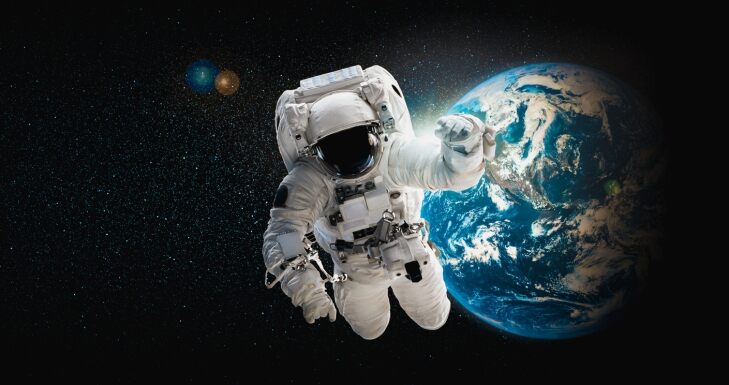Tuesday, March 12, 2024

International regulations governing space flight lack rules to protect space tourism passengers from the ill-effects of cosmic radiation, according to researchers.
Over the last decade, entrepreneurial billionaires such as Jeff Bezos and Richard Branson have launched commercial space flights targeting tourists that are prepared to part with huge sums of money for a few minutes of low orbit travel.
However, scientists point to the the dangers of sudden changes in space weather — the radiation present in space, such as solar wind of heavy ions and atomic nuclei.
These changes include ground level enhancement (GLE), when the charged particles from the Sun have enough energy measurable at the Earth’s surface.
They also include solar particle events (SPEs) when particles emitted by Sun — mostly protons — are accelerated by the Sun’s atmosphere or space by a coronal mass ejection shock.
Either can have “significant health implications for crew and passengers,” the research published by journal Space Policy says.
“Exposure to elevated levels of ionising radiation, such as those possible during GLE or SPE events, has been noted by the UK Health Protection Agency, to potentially ‘cause damage to DNA, lead to mutations, uncontrolled cell division and lead to malignancy’,” the paper from the University of Surrey says.
“The space tourism industry is currently not fully aware of the radiation risks and is instead relying on incomplete ‘informed’ consent basis for non-crew space flight participants.
Further, the current regulation for the industry places the risk burden firmly on the space tourist,” adds the research paper led by Chris Rees, postgraduate research student.
The study reckons that existing regulation applies to space flight crews rather than paying passengers. “For the potential space tourist, regulation is still catching up with this new industry.
Further input into potential future regulation will be required going forward, noting that current fit-for-purpose legislation for radiation protection and associated risk assessment for space tourism does not exist,” the paper says.
On both sides of the Atlantic a patchwork of laws fails to provide protection for space tourists, the researchers argue.
For example, UK Air Navigation Order (ANO) rules for cosmic radiation impose limits on air crew exposure over a year.
“The ANO forms the basis of regulation in the UK for very high altitude flights and could potentially be applied to future space tourism,” the paper points out.
However, the ANO does not set out requirements for real-time radiation monitoring on commercial aircraft or spacecraft.
Space tourism is expected to take off. Research found the market worth $848 million in 2023 and could grow to $27.9 billion by 2032.
Virgin Galactic took its first paying passengers in June last year, taking off from Spaceport America in New Mexico.
In May 2021, Jeff Bezos’s Blue Origin space tourism venture set its price for just such an experience at $1.4m (£1m) or best offer. It made its first flight in July that year.
Tags: Space tourism
Saturday, April 27, 2024
Saturday, April 27, 2024
Friday, April 26, 2024
Friday, April 26, 2024
Friday, April 26, 2024